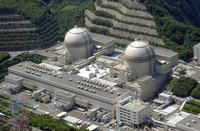-
Provision in House farm bill could postpone FDA food safety regulations
The largest overhaul of food safety regulations in the United States in more than five decades could be in danger as a result of an amendment in the farm bill that passed the House last week and sent to the Senate Tuesday. The House farm bill (H.R. 2642)has a provision requiring the Food and Drug Administration (FDA) to direct a “scientific and economic analysis” of the regulations under the Food Safety and Modernization Act (FSMA).
-
-
Disruption of maize trade would have global ramifications

Maize is at the center of global food security as growing demands for meat, fuel uses, and cereal crop demands increase the grain’s pivotal importance in diets worldwide. Disruptions to U.S. exports of maize (corn) could pose food security risks for many U.S. trade partners due to the lack of trade among other producing and importing nations. This is particularly true in nations like Mexico, Japan, and South Korea that have yet to diversify their sources.
-
-
More crude oil delivered to U.S. refineries by rail, truck, and barge
The use of rail, truck, and barge to deliver crude oil to refineries has increased, in part due to increases in U.S. crude oil production. Refinery receipts of crude by truck, rail, and barge remain a small percentage of total receipts, but the U.S. Energy Information Administration (EIA) notes that refineries across the nation received more than one million barrels per day (bbl/d) by rail, truck, and barge in 2012, a 57 percent increase from 2011.
-
-
U.S. research universities subject to sustained cyberattack campaign by China
Leading U.S. research universities report that they have been subject to millions of Chinese hacking attempts weekly. The Chinese are aware that universities, and the professors who do research under the schools’ auspices, receive thousands of patents each year in areas such as prescription drugs, computer chips, fuel cells, aircraft, medical devices, food production, and more. The Chinese government-sponsored cyberattacks on American research universities are an expansion of efforts by China to steal information that has commercial, political, or national security value.
-
-
Hackathons used by government, industry for app development, recruitment

Local and state governments, the music industry and private businesses have begun to host “hackathons” in an effort to learn more about applications that steal and use their data, recruit candidates for cybersecurity jobs, and more generally celebrate the hacking subculture.
-
-
Dealing with man-made earthquakes
Between 1967 and 2000, central and eastern United States experienced on average 20 earthquakes above a magnitude 3.0 a year. Between 2010 and 2012, the number of earthquakes above a magnitude 3.0 in these regions has dramatically increased to an average of 100 a year. This increase in earthquakes prompts two important questions: Are they natural, or man-made? And what should be done in the future as we address the causes and consequences of these events to reduce associated risks?
-
-
Addresses trade-offs between food security, greenhouse gas emissions
Agriculture and land use change contributed about 1/3 of total human greenhouse gas emissions in the past decade, through crop cultivation, animal production, and deforestation. Improving agricultural productivity could help cut greenhouse gas emissions from agriculture, a new study shows, but sustainable farming methods are key.
-
-
Lawmakers uneasy about Smithfield’s acquisition by a Chinese food giant
Lawmakers last week questioned Smithfield Foods CEO Larry Pope about the proposed acquisition of the pork producer by China’s largest meat producer. Lawmakers are worried that the acquisition will negatively affect U.S food supply and agricultural producers.
-
-
Consolidation expected among large cybersecurrity contractors
Europe’s largest defense company, BAE Systems, says the number of military contractors selling data protection services to governments will decrease as clients demands for ever-more-sophisticated products increase.
-
-
Concrete recycling robot disassembles concrete structures for recycling, reuse

Current concrete-demolition techniques require a lot of power crushing, separation, and machinery, not to mention the fact that they waste a lot of water in order to prevent dust blooms during operation. A new concrete recycling robot is designed efficiently to disassemble concrete structures without any waste, dust, or separation and enable reclaimed building materials to be reused for new prefabricated concrete buildings. It does so by using a water jet to crack the concrete surface, separate the waste, and package the cleaned, dust-free material.
-
-
Climate change, severe weather threaten U.S. energy sector: Dept. of Energy
The U.S. entire energy system is vulnerable to increasingly severe and costly weather events driven by climate change, according to a U.S. Department of Energy report published last week. These climate and weather trends — increasing temperatures, decreasing water availability, more intense storm events, and sea level rise — each independently, and in some cases in combination, could restrict the supply of secure, sustainable, and affordable energy critical to U.S. economic growth.
-
-
The tax contributions of undocumented immigrants to states and localities
Opponents of immigration reform argue that undocumented immigrants would be a drain on federal, state, and local government resources if granted legal status under reform. It is also true, however, that the 11.2 million undocumented immigrants living in the United States are already taxpayers, and that their local, state, and federal tax contributions would increase under reform.
-
-
U.S. defense industry fights budget cuts
The U.S. defense industry has been fighting budget cuts for two years now. The industry’s effort to prevent sequestration from taking effect has failed, but there is optimism in defense circles that this time the effort may well succeed.
-
-
U.S. power plants use more coal, bucking the trend toward natural gas
Power plants in the United States are burning more coal to produce electricity, bucking the trend toward using natural gas, and in the process emitting more greenhouse gasses into the atmosphere, a new government report says. Burning coal to produce electricity was popular just a few years ago, but hydraulic fracturing led to a natural gas boom, driving down gas prices and making natural gas more competitive with coal. The demand for natural gas got so high, however, that its price began to creep up at the same time that the price of coal dropped because of weakening demand for it.
-
-
Japan to restart nuclear power plants

Japan’s fifty nuclear power plants were taken off-line in the wake of the 2011 Fukushima nuclear disaster, but the government Prime Minister Shinzo Abe, which took office in December, said it was planning to restart Japan’s nuclear power generation program.
-
More headlines
The long view
Factories First: Winning the Drone War Before It Starts
Wars are won by factories before they are won on the battlefield,Martin C. Feldmann writes, noting that the United States lacks the manufacturing depth for the coming drone age. Rectifying this situation “will take far more than procurement tweaks,” Feldmann writes. “It demands a national-level, wartime-scale industrial mobilization.”
Trump Is Fast-Tracking New Coal Mines — Even When They Don’t Make Economic Sense
In Appalachian Tennessee, mines shut down and couldn’t pay their debts. Now a new one is opening under the guise of an “energy emergency.”
Smaller Nuclear Reactors Spark Renewed Interest in a Once-Shunned Energy Source
In the past two years, half the states have taken action to promote nuclear power, from creating nuclear task forces to integrating nuclear into long-term energy plans.
